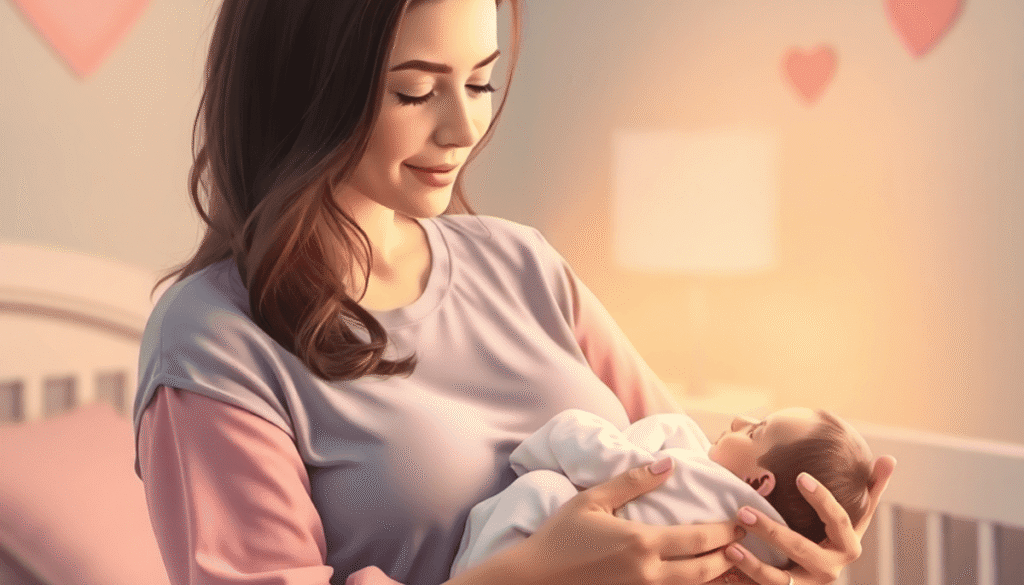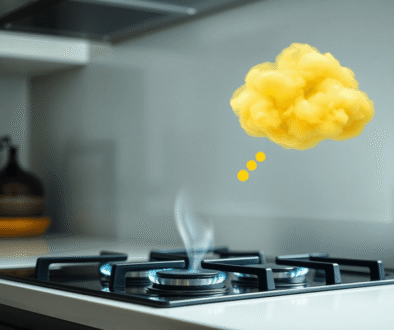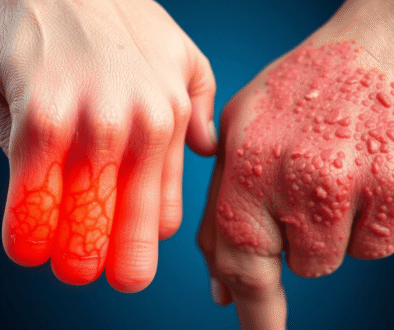The Emotional Signs of Postpartum Depression: What to Look For
Bringing a new baby home should be a joyful experience, yet for many mothers, this period becomes clouded by postpartum depression (PPD). Unlike the temporary “baby blues” that affect up to 80% of new mothers in the first two weeks after delivery, PPD is a serious mental health condition that can persist for months or even years if left untreated.
Recognizing the emotional signs of PPD early can make a critical difference in recovery. The sooner you identify these symptoms, the faster you can seek help and begin your journey toward healing. Many mothers hesitate to reach out, believing their feelings are just part of new parenthood – but PPD requires professional support and understanding.
In this comprehensive guide, you’ll discover:
- The key emotional indicators that distinguish PPD from normal adjustment
- Seven specific emotional signs to watch for in yourself or loved ones
- How emotional symptoms connect with physical manifestations of PPD
- When and how to seek professional help
Let’s explore these vital signs together, empowering you with the knowledge to recognize PPD and take action when needed.
Understanding Postpartum Depression
Postpartum depression (PPD) is a serious mood disorder that affects new mothers. It is characterized by intense emotional and physical symptoms that can greatly impact daily life. Unlike temporary mood swings, PPD is a persistent condition that requires professional help.
When Does Postpartum Depression Occur?
PPD can occur at different times:
- During pregnancy (known as prenatal depression)
- Immediately after childbirth
- Anytime within the first year after giving birth
Three Types of Postpartum Mood Disorders
There are three distinct types of postpartum mood disorders:
- Baby Blues: This condition involves mild mood changes that last for 3 to 14 days and resolve naturally without treatment.
- Postpartum Depression: PPD is characterized by severe and persistent symptoms lasting weeks to months, which require professional treatment. It affects 1 in 7 new mothers.
- Postpartum Psychosis: This rare but dangerous condition includes hallucinations and delusions, necessitating immediate medical attention. It affects 1-2 in 1,000 new mothers.
Factors Contributing to the Development of PPD
PPD develops due to a combination of factors:
- Hormonal changes after childbirth
- Physical exhaustion
- Sleep deprivation
- Genetic predisposition
- Environmental stressors
- Previous history of depression
- Lack of support system
Distinguishing PPD from Other Postpartum Mood Disorders
The severity and duration of symptoms differentiate PPD from other postpartum mood disorders. While baby blues typically resolve within two weeks, PPD symptoms persist and can worsen without proper treatment. Postpartum psychosis presents the most severe form, requiring immediate hospitalization to ensure both mother and baby’s safety.
Key Emotional Signs of Postpartum Depression
Recognizing the emotional signs of postpartum depression (PPD) can be challenging, as many symptoms might be dismissed as normal adjustments to motherhood. These signs often appear gradually and can intensify without proper intervention.
1. Persistent Sadness and Deep Feelings of Hopelessness
The hallmark sign of PPD is a deep, persistent sadness that doesn’t lift with time or positive events. This isn’t the occasional “bad day” that many new mothers experience – it’s an overwhelming emotional state that persists for two weeks or longer.
Common manifestations include:
- A constant feeling of emptiness or numbness
- Inability to feel joy, even during special moments with the baby
- Persistent negative thoughts about the future
- Difficulty seeing beyond the current emotional state
- Loss of interest in previously enjoyed activities
- Feeling “stuck” in a cycle of sadness
Many mothers with PPD describe their sadness as:
“It’s like being trapped in a dark room with no windows or doors, even when the sun is shining outside.”
The hopelessness associated with PPD can manifest in specific thought patterns:
- “I’ll never be good enough for my baby”
- “Things will never get better”
- “I’m not cut out for motherhood”
- “My baby deserves better than me”
This persistent sadness differs from typical new parent emotions in its:
- Duration: Lasting more than two weeks
- Intensity: Interfering with daily functions
- Resistance: Not improving with rest or support
- Pervasiveness: Affecting multiple aspects of life
These feelings often intensify during specific times, such as:
- Early morning hours
- When alone with the baby
- During nighttime feedings
- After visiting with other mothers and their babies
2. Frequent Mood Swings and Irritability
Mood swings during PPD can feel like riding an emotional rollercoaster that’s impossible to control. You might experience:
- Sudden shifts from calm to intense anger
- Unexpected crying episodes without clear triggers
- Irritability that seems disproportionate to situations
These emotional fluctuations often manifest in daily scenarios:
- Snapping at your partner over minor issues
- Feeling overwhelmed by routine baby care tasks
- Experiencing intense frustration with normal baby behaviors
The irritability associated with PPD differs from typical new-parent stress. You might notice:
- Persistent Agitation: A constant state of being “on edge”
- Heightened Sensitivity: Normal sounds like baby crying become unbearable
- Difficulty Regulating Emotions: Unable to “calm down” after getting upset
Many mothers report feeling guilty about these mood swings, creating a cycle where irritability leads to self-blame, triggering more emotional instability. These symptoms can persist throughout the day and may worsen during times of increased stress or fatigue.
Your reactions might feel foreign to your usual personality, making everyday interactions challenging. This emotional volatility can affect relationships with your partner, other children, and family members who may struggle to understand these sudden changes in your behavior.
3. Feelings of Worthlessness, Guilt, and Inadequacy Specific to Motherhood
Mothers experiencing postpartum depression often grapple with intense feelings of inadequacy in their new role. These emotions manifest in specific ways:
- Constant self-doubt about parenting decisions
- Harsh self-criticism over minor parenting mistakes
- Comparing themselves unfavorably to other mothers
- Believing they’re “failing” at motherhood
The guilt associated with PPD can be particularly overwhelming:
- Feeling guilty about not enjoying motherhood
- Blaming themselves for difficult births or complications
- Experiencing shame over negative thoughts about their baby
- Self-reproach about wanting time alone or breaks from caregiving
These feelings of worthlessness can create a destructive cycle where mothers:
- Question their ability to care for their child
- Feel undeserving of support or help
- Believe their baby would be better off with someone else
- Struggle to accept praise or positive feedback about their parenting
Many mothers with PPD report feeling like “bad mothers” or “imposters,” despite providing adequate care for their babies. These intrusive thoughts can persist even when faced with evidence of their competence as parents.
4. Difficulty Bonding with the Baby
One of the most distressing symptoms of postpartum depression is the struggle to form an emotional connection with your newborn. You might find yourself:
- Unable to feel joy or warmth when holding your baby
- Feeling disconnected or detached during feeding times
- Experiencing difficulty responding to your baby’s cues
- Missing the expected rush of love many mothers describe
This bonding challenge can manifest in practical ways:
- Hesitation to engage in skin-to-skin contact
- Reduced eye contact with your baby
- Limited engagement in baby talk or singing
- Mechanical approach to basic care tasks
Many mothers with PPD report feeling like they’re “going through the motions” of caregiving without experiencing the emotional connection. You might notice yourself watching other mothers interact lovingly with their babies while feeling unable to replicate that same level of emotional engagement with your own child.
These bonding difficulties don’t reflect your worth as a mother – they’re symptoms of PPD that can improve with proper support and treatment. Your healthcare provider can help develop strategies to strengthen the mother-infant bond while addressing the underlying depression.
5. Social Withdrawal and Isolation
Social withdrawal is a significant warning sign of postpartum depression. It involves a mother gradually pulling away from friends, family, and everyday activities. Here are some signs to look out for:
- Declining invitations to social gatherings
- Avoiding phone calls or text messages
- Canceling appointments or playdates
- Spending excessive time alone in the bedroom
- Resistance to visitors, including close family members
This isolation creates a dangerous cycle – the less social interaction a mother has, the deeper her feelings of loneliness become. Many mothers report feeling “invisible” or “disconnected” from the outside world, even when they live with others.
Physical isolation often shows up as:
- Staying indoors for long periods
- Refusing help with childcare
- Limited participation in family activities
- Decreased engagement in previously enjoyed hobbies
- Minimal interaction during necessary social encounters
These behaviors can hide deeper emotional struggles like fear of judgment, overwhelming anxiety in social situations, or a belief that others won’t understand their experiences. The isolation makes PPD symptoms worse and creates obstacles to getting the support and treatment they need.
6. Increased Anxiety About Your Baby’s Well-being
Anxiety in postpartum depression (PPD) shows up as an intense, constant worry about your baby’s safety and health. You might find yourself:
- Having unwanted thoughts about accidents or harm coming to your baby
- Always checking if your baby is breathing while they sleep
- Being overly afraid of common childhood illnesses
- Struggling to leave your baby with other caregivers
- Constantly worrying about making mistakes in taking care of your baby
These anxious thoughts can become too much to handle, causing physical symptoms like:
- A racing heart
- Shortness of breath
- Feeling restless
- Having trouble sleeping even when your baby sleeps
Many mothers with PPD say they spend hours online looking up normal baby behaviors or minor health issues. This heightened state of alertness can get in the way of daily activities and stop you from enjoying calm moments with your baby.
The anxiety might lead you to create strict routines or safety measures that go beyond what is reasonable. You might find yourself:
- Taking your baby’s temperature multiple times a day without any reason
- Sterilizing items repeatedly that don’t need it
- Avoiding normal activities because you think there are risks
- Having panic attacks when you’re away from your baby
7. Changes in Emotional Expression, Such as Frequent Crying Spells or Increased Irritability Beyond Typical Stress Responses
Mothers with PPD often experience intense emotional reactions that go beyond typical postpartum adjustments. You might find yourself crying uncontrollably at seemingly minor triggers – a commercial, a kind word from a friend, or even watching your baby sleep. These crying spells can strike without warning and feel impossible to control.
The irritability associated with PPD manifests as:
- Snapping at loved ones over small issues
- Feeling overwhelmed by normal household sounds
- Having a shorter fuse than usual with other children or pets
- Experiencing anger that feels disproportionate to the situation
These emotional responses can feel frightening and unfamiliar, as if you’re watching yourself react in ways that don’t align with your typical personality. Many mothers report feeling “like a different person” during these episodes.
Your emotional reactions might also include:
- Sudden outbursts followed by intense guilt
- Difficulty regulating emotions throughout the day
- Feeling emotionally “raw” or hypersensitive
- Unpredictable mood shifts that feel beyond your control
These symptoms can create a cycle where emotional dysregulation leads to increased stress, potentially triggering more intense emotional responses.
Physical Symptoms Linked to Emotional Signs of Postpartum Depression
The emotional symptoms of postpartum depression often show up along with specific physical changes. These physical symptoms can make the emotional distress worse, creating a difficult cycle for new mothers.
Sleep Disturbances
- Inability to sleep when the baby sleeps
- Restless nights despite physical exhaustion
- Sleeping excessively as an escape mechanism
- Disrupted sleep patterns beyond normal newborn care demands
Appetite and Weight Changes
- Complete loss of appetite
- Emotional eating patterns
- Significant weight fluctuations
- Disinterest in preparing or consuming meals
Persistent Fatigue
- Exhaustion that sleep doesn’t resolve
- Difficulty performing basic daily tasks
- Physical heaviness in limbs
- Decreased energy levels unrelated to normal postpartum recovery
Your body sends clear signals when experiencing postpartum depression. Physical symptoms paired with emotional signs warrant immediate attention from healthcare providers. These symptoms can affect your ability to care for yourself and your baby, making early recognition crucial for treatment success.
If you notice these physical symptoms alongside the emotional signs we’ve discussed, reach out to your healthcare provider. Professional support can help address both the physical and emotional aspects of postpartum depression.



